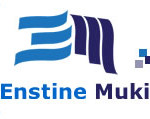Google’s core algorithm updates can significantly impact your website’s ranking, often resulting in fluctuating traffic. These updates, rolled out several times a year, aim to improve search results, but they can also disrupt your SEO efforts if you’re not prepared. Staying ahead of these changes is essential for maintaining your site’s visibility.
In this article, we’ll analyze the impact of Google’s core updates and offer practical tips to ensure your website is optimized to meet evolving SEO standards. Whether you’re working with an SEO company or managing your site independently, this guide will help you stay on top.
Understanding Google’s Core Algorithm Updates
Google’s core updates are large-scale changes to how its search engine ranks content. These updates focus on refining the quality of search results by adjusting algorithms that evaluate websites based on content relevance, technical performance, and user experience. Unlike smaller updates, core changes affect many sites across different sectors, and the effects can vary from minor drops in rankings to complete overhauls in search visibility.
Why Core Updates Matter
Google’s mission is to deliver high-quality and relevant content to its users. With each core update, the search engine gets better at distinguishing between valuable and outdated or low-quality content. For website owners, this means that staying static in your SEO practices is risky. You could experience a decline in rankings if your content no longer aligns with what Google deems high quality.
Core updates are particularly impactful because they don’t just fix specific issues; they re-evaluate the landscape of the internet. If your site loses rankings during one of these updates, it could signal the need for an overhaul in how your website approaches SEO.
How to Stay Ahead of Google Algorithm Changes
While it’s impossible to predict the exact details of future core updates, there are several strategies you can implement to ensure your website is prepared for whatever Google rolls out. Let’s explore some of the key areas to focus on.
1. Create High-Quality, User-Focused Content
Content remains king when it comes to Google’s algorithm. However, it’s not just about producing large quantities of content; it’s about quality. Google prioritizes content that is useful, relevant, and authoritative. So how can you ensure your content meets these standards?
- Relevance: Ensure your content answers the questions your target audience is asking. Keyword research remains crucial but don’t over-optimize. Focus on delivering value rather than stuffing keywords.
- Originality: Avoid duplicate content or rehashing common information. Unique perspectives, research, and insights are what will set your content apart.
- Authority: Build your content’s authority by citing credible sources and earning backlinks from reputable sites in your niche.
- Comprehensive Coverage: Answer all aspects of a topic within your content. Comprehensive guides and in-depth articles often rank better than shorter, less detailed pieces.
When you prioritize user needs and create engaging, informative content, you increase the likelihood of performing well during core updates. Google wants to reward sites that provide real value, so consistently producing high-quality content is your best defense against algorithm fluctuations.
2. Focus on User Experience (UX)
User experience is becoming more critical in SEO, especially with Google’s core updates. Google assesses how users interact with your website, and if your site offers poor UX, it can lead to lower rankings.
- Site Speed: Ensure your website loads quickly on both desktop and mobile devices. Google’s Core Web Vitals, which measure loading speed, interactivity, and visual stability, are now ranking factors. Slow load times can harm your rankings.
- Mobile Optimization: More than half of all global internet traffic comes from mobile devices, so a mobile-optimized site is crucial. Your website should be responsive, meaning it adapts to different screen sizes and offers a seamless experience across all devices.
- Navigation: Your website should be easy to navigate, with intuitive menus and clear calls-to-action (CTAs). Users should be able to find what they need without frustration.
- Security: Ensure your site is secure with HTTPS encryption. Google favors secure sites, and users trust them more, which can improve your bounce rate and time on site.
By focusing on UX, you’re not only improving your site for users, but you’re also making it more attractive to Google. A seamless, user-friendly experience will help your site weather the storm of any algorithm update.
3. Optimize for Technical SEO
Technical SEO is often the backbone of a well-optimized website. If your website has underlying issues such as slow load times, broken links, or improper indexing, it may struggle to perform well, regardless of how great your content is.
- Crawlability: Ensure that Google can easily crawl and index your pages. Use a clean and organized URL structure, submit a sitemap, and avoid duplicate content issues.
- Internal Linking: A strong internal linking structure helps Google understand your site’s hierarchy and relationship between pages. It also keeps users engaged by leading them to related content.
- Structured Data: Implement structured data (schema markup) to help Google better understand your content. Schema can improve your site’s appearance in search results, such as rich snippets.
- Fix Errors: Regularly audit your website for issues such as 404 errors, redirects, and broken links. Tools like Google Search Console can help you monitor and address these problems.
Technical SEO is essential for ensuring that your website is ready to compete post-algorithm updates. Regularly auditing and fixing issues can prevent any surprises when updates roll out.
4. Build E-A-T (Expertise, Authoritativeness, Trustworthiness)
E-A-T is an acronym that Google uses to assess the quality of content, particularly for sites dealing with sensitive topics like finance, health, and law. Websites that demonstrate high levels of expertise, authoritativeness, and trustworthiness are more likely to rank well after core updates.
- Expertise: Ensure that your content is written by experts in the field. If you’re in a niche industry, credentials matter. Consider highlighting your qualifications or linking to author profiles with relevant expertise.
- Authoritativeness: Build authority by earning high-quality backlinks from other reputable sites. Guest posting, networking, and digital PR strategies can help establish your site as an authority in your niche.
- Trustworthiness: Use secure HTTPS, include privacy policies and contact information, and ensure that your site offers accurate, up-to-date information. Transparency builds trust with both users and Google.
Core updates often target websites that lack E-A-T. By strengthening these elements, you’ll be better prepared to maintain or improve your rankings.
Preparing for Future Updates
While no one can predict exactly how Google will change its algorithm in the future, following best practices will keep you ahead of the curve. Stay informed by keeping up with industry news, subscribing to updates from reputable SEO blogs, and utilizing resources from any SEO company you’re working with.
Continuous Improvement is Key
Rather than waiting for an update to occur and scrambling to make changes, commit to ongoing optimization. Regularly updating your content, addressing technical issues, and refining user experience should be part of your long-term strategy.
Here are a few tips for continuous improvement:
- Content Audits: Regularly review and update old content. Add fresh insights, remove outdated information, and ensure all links are functional.
- Site Performance Monitoring: Use tools like Google Analytics and Google Search Console to monitor traffic patterns, user behavior, and site errors.
- Industry Research: Stay informed about changes in your industry and adapt your content to meet new trends or regulations.
Conclusion
Google’s core algorithm updates are designed to improve the quality of search results, but they can disrupt your site’s rankings if you’re not prepared. By focusing on high-quality content, improving user experience, optimizing for technical SEO, and building E-A-T, you can stay ahead of these changes and maintain your search visibility.
Remember, SEO is not a one-time task but an ongoing effort. Regularly update your site, address issues, and always prioritize the user experience. By doing so, you’ll be well-equipped to handle any future algorithm changes and continue to grow your online presence.

